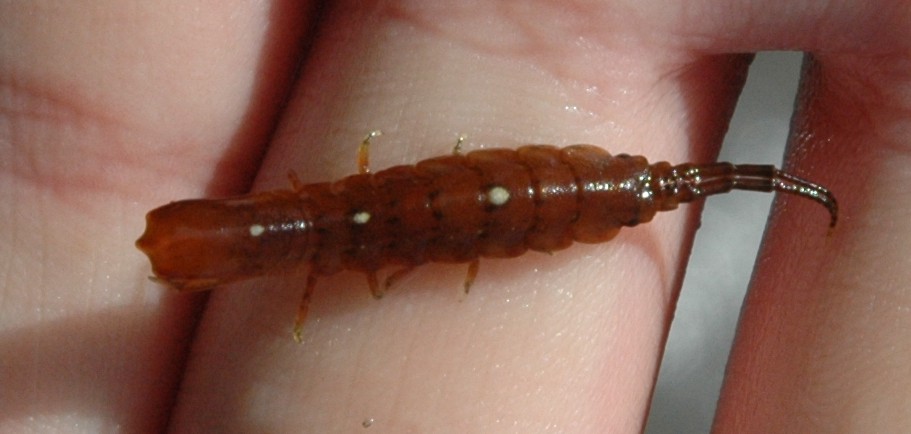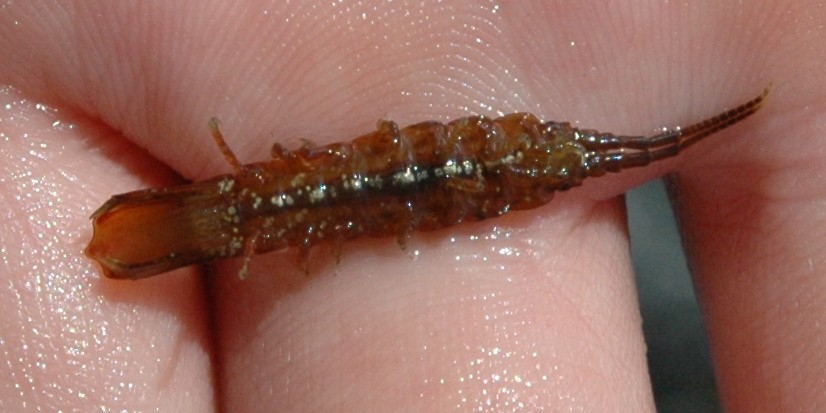Idotea ochotensis Brandt, 1851Common name(s): |
|
| Synonyms: |  |
| Phylum Arthropoda
Subphylum Crustacea Class Malacostraca Subclass Eumalacostraca Superorder Peracarida Order Isopoda Suborder Valvifera Family Idoteidae |
|
| Idotea ochotensis on 3rd Beach, Olympic Peninsula, WA | |
| (Photo by: Dave Cowles, July 2006) | |
How to Distinguish from Similar Species: Idotea aculeata is very similar but the palp of its maxilliped has 5 articles and it is found only from central California south. Idotea resecata has a concave posterior margin on the pleotelson.
Geographical Range: Japan, NE Asia to San Francisco
Depth Range: At least intertidal and shallow subtidal
Habitat: We found this individual in an area of mixed boulders and sand, in an area with strong surf. Sometimes found on drifting seaweed and in brackish water.
Biology/Natural History:
| Return to: | |||
| Main Page | Alphabetic Index | Systematic Index | Glossary |
References:
Dichotomous Keys:Kozloff 1987, 1996
General References:
Johnson
and Snook, 1955
Scientific Articles:
Web sites:
General Notes and Observations: Locations, abundances, unusual behaviors:

The underside of the same individual as above.
Authors and Editors of Page:
Dave Cowles (2006): Created original page